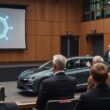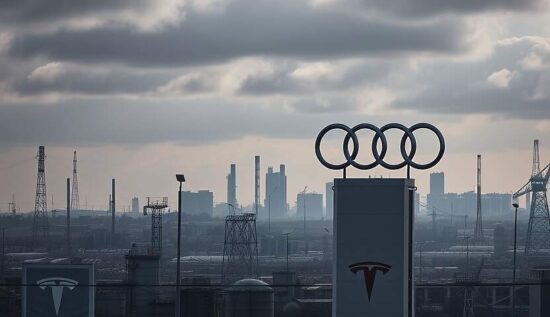The effects of Germany’s deindustrialization are now becoming apparent, as reported by Bloomberg. For the first time, the US-based electric vehicle manufacturer Tesla has surpassed the German premium brand Audi in global sales. Tesla delivered 1.79 million vehicles, while Audi, a luxury brand of the Volkswagen group, sold 1.67 million cars, a 12% decline from the previous year. This development vividly illustrates the fundamental shift in the global automotive industry.
Tesla’s success is not solely based on its innovation, but also on its rapid expansion. The Model Y, Tesla’s sport utility vehicle, is now one of the best-selling vehicles worldwide and is set to receive a comprehensive model update this year. Although Tesla’s overall sales have seen a slight decline and its lead over Chinese competitor BYD is narrow, the company remains on track to maintain its leadership in the electric vehicle segment.
In contrast, the signs are ominous for German automakers. Audi, like Volkswagen and Mercedes-Benz, is struggling with a weakening demand in key regions such as China. The once-booming Chinese demand for premium vehicles has slowed, and Audi’s electric models are finding fewer buyers in China, Europe, and North America. The decline in Audi’s full-electric models, with sales of around 164,000 units, an 8% drop, is particularly disappointing.
This downturn has already led to a series of profit warnings from the German automotive industry, including those from Volkswagen and BMW. Audi is responding to the situation by reducing production in several plants. The production of the Q8 e-tron is set to be halted at the Brussels plant due to weak demand for the model. These measures underscore the growing uncertainties on global markets, influenced not only by the competitive pressure from Asia but also by the economic turbulence in Europe.
Despite this challenging situation, Audi remains optimistic and plans to counter the market crisis with new model updates and an expanded range of plug-in hybrids in the coming months. Audi CEO Gernot Döllner announced that models such as the A7 and Q3 will receive a facelift, and numerous new plug-in hybrids will be launched. Whether these steps will be sufficient to pull Audi out of the crisis and reduce the gap with Tesla remains to be seen.





